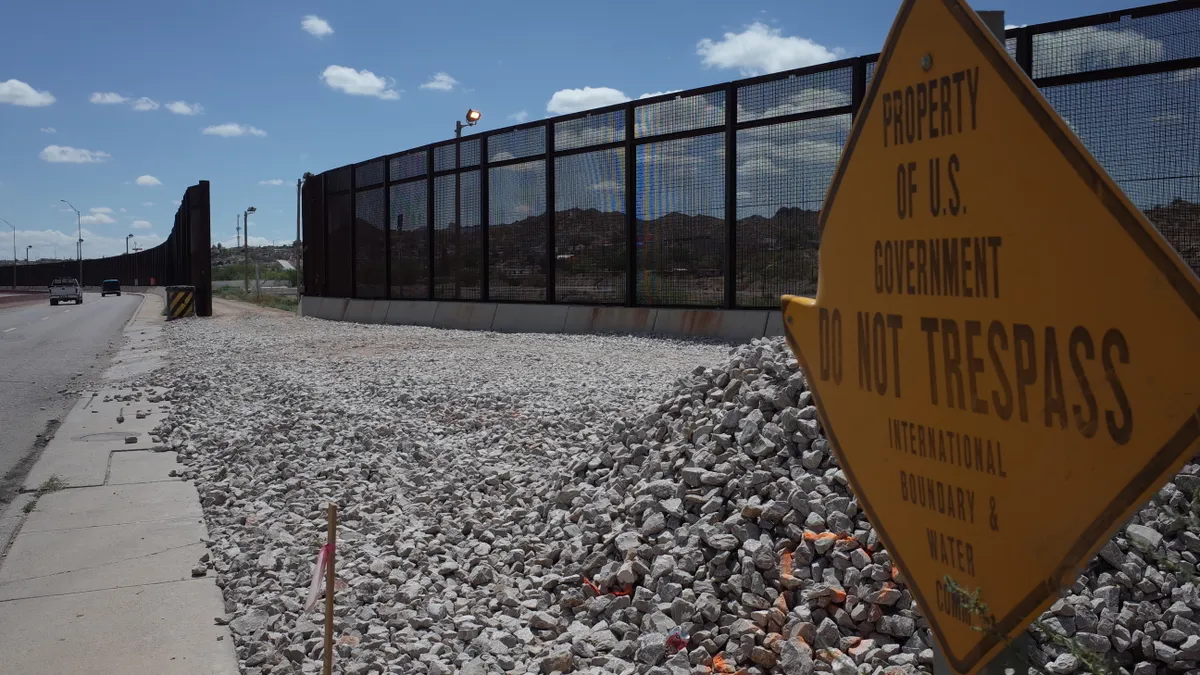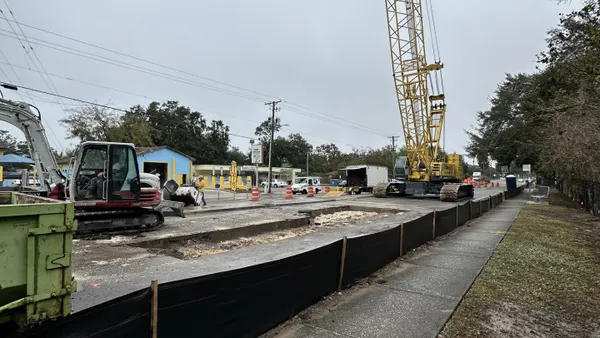UPDATE: Aug. 3, 2020: The Supreme Court in a 5-4 decision has refused to stop construction on the U.S.-Mexico border wall even though the Ninth Circuit Court of Appeals ruled June 26 that the Trump administration cannot transfer $2.5 billion of military funds to use on those projects.
The decision, announced on Friday, applies to a group of border wall segments in California, New Mexico and Arizona.
In his dissenting opinion, Justice Stephen Breyer wrote that he would have lifted the Supreme Court’s stay of the Ninth District's injunction against the administration because "the Court’s decision to let construction continue ... may operate, in effect, as a final judgment."
Despite rulings from lower courts that military funds could not be diverted for use on the border wall, in July 2019, the Supreme Court allowed construction to continue while those cases proceeded.
UPDATE: July 8, 2020: The House of Representatives has introduced another potential obstacle to the use of military funds to build the U.S.-Mexico border wall. The House fiscal 2021 spending bill for military construction and the Department of Veterans Affairs prohibits funds appropriated since fiscal year 2016 from being used to erect barriers along the southern border.
In addition, the bill prohibits funding for projects that President Donald Trump delayed in order to dip into funding for the border wall.
The $251 billion spending bill includes a provision for $10 billion in military construction in 2021. The House Appropriations Subcommittee on Military Construction, Veteran Affairs and Related Agencies will consider the legislation next week.
Dive Brief:
- The Ninth Circuit Court of Appeals on Friday ruled that President Donald Trump cannot divert $2.5 billion of military funds to use in the construction of wall projects at the U.S.-Mexico border.
- The federal appeals court upheld a district court judge's ruling that found the Trump administration's transfer of money from the Pentagon to border wall construction constituted an attempt to skirt Congress, which would not authorize the billions of dollars the president wanted for the initiative. Even though the administration transferred the funds, originally intended for counter-narcotics operations, under the president's declaration of a national emergency, the appeals court said the action was a violation of the Appropriations Clause and "unlawful."
- U.S. Circuit Court Judge Haywood Gilliam, the judge who made the original ruling, also placed a permanent injunction on the administration that was supposed to prevent it from using the disputed funds on border wall construction, but the U.S. Supreme Court lifted the injunction and allowed work to continue. That order, according to a report from CNN, is still in effect.
Dive Insight:
Despite the bigger issues of who gets to approve border wall funding or what decisions the president can make under a national emergency, the Supreme Court's favorable decision toward the Trump administration last year was based on the likelihood that the plaintiff in the case, the Sierra Club, did not have standing to bring a legal action that would ultimately force a review of the Acting Defense Secretary's decision to transfer military funds for other use at the border.
As part of the appeals decision, the court found that the Sierra Club did have standing for the following reasons:
- Its members would be injured by border wall construction due to the damage it would do to wildlife and natural habitats.
- It would limit member access to certain areas and cause other damage.
- The injuries are "fairly traceable" to the defendants.
- The injuries are "likely to be redressed by a favorable judicial decision."
Earlier this year, The Washington Post reported that the Trump administration was making plans to transfer another $7.2 billion of military funds for border wall construction in addition to the $6.1 billion it carved out for the wall initiative in 2019. The $7.2 billion will come from counter-narcotics programs ($3.5 billion) and military construction projects ($3.7 billion).











